CSE Technical Reports Sorted by Technical Report Number
| TR Number | Title | Authors | Date | Pages |
| CSE-TR-193-94 | Instructable Autonomous Agents | Huffman | Jan, 94 | 142 |
| CSE-TR-194-94 | Scheduling for Modern Disk Drives and Non-Random Workloads | Worthington Ganger and Patt | Mar, 94 | 45 |
| CSE-TR-195-94 | Effect of Fan-Out on the Performance of a Single-Message Cancellation Scheme | Prakash Wu and Jetli | Feb, 94 | 11 |
| CSE-TR-196-94 | Undoing Actions in Collaborative Work: Framework and Experience | Prakash and Knister | Mar, 94 | 26 |
| CSE-TR-197-94 | Architectural Support for Managing Communication in Point-to-Point Distributed Systems | Feng Rexford Mehra Daniel Dolter and Shin | Mar, 94 | 16 |
| CSE-TR-198-94 | Optimal Local Register Allocation for a Multiple-Issue Machine | Meleis and Davidson | Mar, 94 | 15 |
| CSE-TR-199-94 | Schema Evolution for Real-Time Object-Oriented Databases | Zhou Rundensteiner and Shin | Mar, 94 | 20 |
| CSE-TR-200-94 | Unix I/O Performance in Workstations and Mainframes | Chen and Patterson | Mar, 94 | 15 |
| Rapid advances in processor performance have shifted the performance bottleneck to I/O systems. The relatively slow rate of improvement in I/O is due in part to a lack of quantitative performance analysis of software and hardware alternatives. Using a new self-scaling I/O benchmark, we provide such an evaluation for 11 hardware configurations using 9 variations of the Unix operating system. In contrast to processor performance comparisons, where factors of 2 are considered large, we find differences of factors of 10 to 100 in I/O systems. The principal performance culprits are the policies of different Unix operating systems; some policies on writes to the file cache will cause processors to run at magnetic disk speeds instead of at main memory speeds. These results suggest a greater emphasis be placed on I/O performance when making operating system policy decisions. |
| CSE-TR-201-94 | Evaluation of Fault-Tolerance Latency from Real-Time Application's Perspectives | Kim and Shin | Mar, 94 | 19 |
| CSE-TR-202-94 | Ravel-XL: A Hardware Accelerator for Assigned-Delay Compiled-Code Logic Gate Simulation | Riepe Silva Sakallah and Brown | Mar, 94 | 22 |
| Ravel-XL is a single-board hardware accelerator for gate-level digital logic simulation. It uses a standard levelized-code approach to statically schedule gate evaluations. However, unlike previous approaches based on levelized-code scheduling, it is not limited to zero- or unit-delay gate models and can provide timing accuracy comparable to that obtained from event-driven methods. We review the synchronous waveform algebra that forms the basis of the Ravel-XL simulation algorithm, present an architecture for its hardware realization, and describe an implementation of this architecture as a single VLSI chip. The chip has about 900,000 transistors on a die that is approximately 1.4cm^2, requires a 256-pin package and is designed to run at 33MHz. A Ravel-XL board consisting of the processor chip and local instruction and data memory can simulate up to one billion gates at a rate of approximately 6.6 million gate evaluations per second. To better appreciate the tradeoffs made in designing Ravel-XL, we compare its capabilities to those of other commercial and research software simulators and hardware accelerators. |
| CSE-TR-203-94 | IDtrace - A Tracing Tool for i486 Simulation | Pierce and Mudge | Mar, 94 | 25 |
| CSE-TR-204-94 | Data and Program Restructuring of Irregular Applications for Cache-Coherent Multiprocessors | Tomko and Abraham | Mar, 94 | 26 |
| CSE-TR-205-94 | Reduction of Cache Interference Misses Through Selective Bit-Permutation Mapping | Abraham and Agusleo | Mar, 94 | 26 |
| CSE-TR-206-94 | Partitioning Regular Applications for Cache-Coherent Multiprocessors | Tomko and Abraham | Mar, 94 | 25 |
| CSE-TR-207-94 | Collected Papers of the Soar/IFOR Project | Laird et.al. | Apr, 94 | 100 |
| CSE-TR-208-94 | Coordinating Decision Making in Large Organizations | Birmingham D'Ambrosio Darr and Durfee | Apr, 94 | 5 |
| CSE-TR-209-94 | Supporting Queries on Source Code: A Formal Framework | Paul and Prakash | Apr, 94 | 20 |
| CSE-TR-210-94 | An Object-Oriented Real-Time Database System for Multiprocessors | Lortz | Apr, 94 | 132 |
| CSE-TR-211-94 | A Transparent Object-Oriented Schema Change Approach Using View Evolution | Ra and Rundesteiner | Apr, 94 | 36 |
| CSE-TR-212-94 | Runtime Monitoring of Timing Constraints in Distributed Real-Time Systems | Jahanian Rajkumar and Raju | Apr, 94 | 21 |
| CSE-TR-213-94 | An Active Visual Estimator for Dexterous Manipulation | Rizzi and Koditschek | May, 94 | 32 |
| CSE-TR-214-94 | An Active OODB System For Genome Physical Map Assembly | Lee Rundensteiner and Thomas | May, 94 | 24 |
| CSE-TR-215-94 | A Flexible Object-Oriented Database Model and Implementation for Capacity-Augmenting Views | Ra Kuno and Rundensteiner | Apr, 94 | 19 |
| CSE-TR-216-94 | Automatic Acquisition of Word Meaning From Context | Hastings | May, 94 | 128 |
| CSE-TR-217-94 | Probing and Fault Injection of Protocol Implementations | Dawson and Jahanian | Oct, 94 | 21 |
| CSE-TR-218-94 | PLINK: An Intelligent Natural Language Parser | Huyck | Aug, 94 | 102 |
| CSE-TR-219-94 | The Evolution of the Soar Cognitive Architecture | Laird and Rosenbloom | Sep, 94 | 43 |
| CSE-TR-220-94 | Conceptual Modeling of Manufacturing Automation | Birla | Sep, 94 | 44 |
| CSE-TR-221-94 | An Attribute-Space Representation and Algorithm for Concurrent Engineering | Darr and Birmingham | Oct, 94 | 19 |
| CSE-TR-222-94 | Wrong-Path Instruction Prefetching | Pierce and Mudge | Nov, 94 | 16 |
| CSE-TR-223-94 | Broy-Lamport Specification Problem: An Evolving Algebras Solution (update see 320-96) | Huggins | Aug, 94 | 10 |
| CSE-TR-224-94 | Design ing Databases with Fuzzy Data and Rules for Application to Discrete Control | Chaudhry Moyne and Rundensteiner | Nov, 94 | 21 |
| CSE-TR-225-94 | A Graphical Query Language for Identifying Temporal Trends in Video Data | Hibino and Rundensteiner | Dec, 94 | 17 |
| CSE-TR-226-94 | Fault-Tolerant Interconnection Networks for Multiprocessors | Ku | Dec, 94 | 124 |
Technical Reports Page



